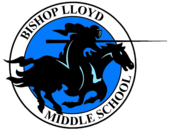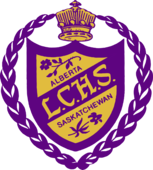Policy 4
TRUSTEE CODE OF ETHICS
General Information
The purpose of this Code of Conduct Policy [Policy] is to establish a standard of conduct applicable to the Trustees of the Lloydminster Public School Division Board [Board]. This standard of conduct is required for public confidence, to ensure the maintenance of the integrity of the Board and to promote the Board’s goals. Board members of Lloydminster Public School Division are expected to act with the utmost integrity, in the best interests of the Board, and to make objective decisions on the strategic investment of resources in pursuit of the goals and objectives of the Board.
Code of Conduct – Principles
As elected officials, board members are expected to conduct themselves in an ethical and reasonable manner. Failure of a board member to conduct themselves in compliance with this Policy may result in sanctions [See Appendix B: Code of Conduct Sanctions].
Board members are expected to put the best interests of the public ahead of their own personal agendas, opinions, and interests.
Board members are expected to act as role models for employees and students.
Board members are also expected to discharge their duties and conduct themselves with decorum and professionalism.
In carrying out their duties, board members of the Board shall:
- Ethical Standards - Act with honesty and uphold the highest ethical standards in order to honour and enhance public confidence in the Board's ability to act in the public interest and for the long-term public good. [See Appendix A: The Code of Ethics]
- Confidentiality - Respect the confidentiality of information relating to the personnel and client records and all administrative and financial business of the Board, its subsidiaries, and projects.
- At all times shall maintain the confidentiality of any information or records that are the property of the Board. Shall not copy, read, discuss, or distribute any portion of these records or information unless they are specifically authorized in writing by the Senior Staff Person or by resolution of the Board to do so.
- Never use any of the information obtained in their capacity as elected officials for personal gain or disclose inside information to anyone except persons inside the Board whose positions require such knowledge, until such information is made public.
- Avoid purchasing or selling assets the value of which might be affected by the Board’s actions or plans, when having knowledge or material inside information which has not been disclosed to the public.
- Not use information obtained as a result of their position or involvement with the Board to advance their position or to the advantage of any other individual unless the information has been made generally available to the public.
- Not make any official announcement of a corporate or policy nature without the prior approval of the Board.
- The Local Authority Freedom of Information and Protection of Privacy Act [LA FOIP] applies to the Board. LA FOIP requires that any records containing personal information obtained, in the possession, or under the control of the Board must be kept confidential. Personal information is defined in section 23 of LA FOIP and includes any information about a person’s education and employment history.
- The unauthorized disclosure of the personal information of an individual by a board member could result in a complaint to the Office of the Saskatchewan Information and Privacy Commissioner or civil proceedings being initiated against the board member or the Board for damages. In the event of such a privacy breach, any records (containing personal information) stored on a board member’s personal devices must be disclosed and produced.
- Types of information that may be exempt from disclosure under LA FOIP include:
- information subject to solicitor-client privilege;
- trade secrets, financial, and confidential information of third parties;
- information that might interfere with an investigation;
- drafts of resolutions or bylaws;
- advice, recommendations, analysis, options etc. developed by or for the Board; and
- proposed plans, procedures, or positions developed for negotiations.
- While LA FOIP applies only to records of information in any form, similar principles will apply to verbal information. A board member who speaks in public about the private and/or personal issues of an employee or student is in breach of the confidentiality section of this Policy.
- A person whose information is improperly disclosed may have a cause of action against the board member, and against the Board itself. The board member may be sued for libel and/or slander if the information disclosed is defamatory.
- Public Scrutiny
- Perform their official duties and arrange their private affairs in a manner that will bear the closest public scrutiny, an obligation that is not necessarily fully discharged by simply acting within the law.
- Online Presence and Social Media
- Be cognizant of how they conduct themselves online and ensure that their online activity, comments, and posts on social media are in line with the purpose and principles of this Policy. The online activities of a board member can dramatically affect the general public’s perception of the Board, the Division and its employees, and the schools within the Division. [See Appendix E: Online Presence and Social Media Guidelines]
- Decision-Making
- Make decisions in the best interests of the Board. While elected from specific sub-divisions, board members must represent the best interests of the entire Division in all matters superseding any other conflicting or contrasting loyalty or affiliation.
- Conflict of Interest
- Not place themselves in any situations where they may be in a real or perceived conflict of interest. [See Appendix C: Conflict of Interest Protocol]
- Integrity Assurance and Disclosure
- Encourage integrity assurance and disclosure in the context of ensuring that all the Board employees and those of contractors, suppliers and all other individuals acting on behalf of the Board exhibit the Board’s values as well as the utmost of honesty, objectivity, care and responsibility.
- Using Lloydminster Public School Board Property
- Not directly or indirectly use or allow to be used any of the Board property for anything other than officially approved activities and/or business. The board member shall also ensure that in using any of the Board’s property do not commit the Board to unreasonable financial or other liabilities.
- Not use the Board’s assets, space or services for private business, activity or profit, unless:
- Prior approval has been obtained from the Board;
- These are available for such use by the public, generally, and the person is receiving no special preference in its use; or
- These are made available to the person as a matter of the Board’s policy or under the terms of employment or appointment.
- Post Lloydminster Public School Board Activity
- Not act, after they leave the Board, in such a manner as to take improper advantage of their previous office. This includes keeping confidential all the Board’s corporate and financial information and matters, and not using these for either personal or corporate advantage.
- Gifts and Benefits
- Not seek, accept or agree to accept a commission, reward, or benefit of any kind from any person who has dealings with the Board, either on their own behalf or through a relative or another person for their benefit.
- Not offer, provide, solicit or accept any gifts, benefits, or excessive entertainment from any person or organization which is directly or indirectly involved in any manner whatsoever with the Board, with the following exceptions:
- They are not intended to be, nor are of sufficient value to be taken as a bribe or other improper payment; or
- The gift does not exceed one hundred ($100.00) dollars in value. Any gift received in excess of such an amount must be disclosed by the recipient to the Board Chair or the Vice-Chair, in the case where the Chair receives the gift, who will rule on its disposition.
- Not gain or attempt to gain a material benefit or advantage over other members of the public from the use of information acquired as a result of their position with the Board unless such information is available to the public generally, nor disclose such information without proper authorization.
- Donations
- A board member shall not make donations on behalf of the Board or Division.
- Undue Influence
- Not give undue preference or treatment to any person in their dealings with the Board
- Not represent the Board or attempt to influence the Board’s dealings directly or indirectly with any of their relatives or business associates.
- Conduct Towards Fellow Board Members/Inappropriate Behaviour at a Board Meeting
- Not wilfully disturb, interrupt or disquiet the proceedings or meetings of the Board. The responsibility for ensuring proper conduct of a meeting ultimately lies with the entire Board but it will be the Chair of the Board who will have the authority to act if a meeting is disrupted. Failure of a board member to conduct themselves in compliance with this Policy may result in sanctions [See also Appendices A: The Code of Ethics and B: Code of Conduct Sanctions]
- Conduct towards Employees:
- Not direct employees or attempt to influence an employee’s behaviour. Policies of the Board must be followed with respect to the supervision of employees. This involves professional skills and knowledge and is not within the authority of the Board. Interference in employee issues, and sometimes even mere knowledge of facts, other than that which has been presented at the Board table, can lead to an allegation of bias against the Board. The Board is, generally, the ultimate decision-maker when it comes to employee discipline and termination and board members who become involved in or have knowledge of extraneous facts may have to recuse themselves from the decision-making process. Board members are also bound by the Board’s policies and by legislation concerning harassment and discrimination. A board member who acts inappropriately towards an employee, whether or not it is during a board meeting, may expose the Board to liability, harassment complaint or an allegation of constructive dismissal.
Legal Reference: Section 63, 85, 87 Education Act, School Division Administration Regulations
Adopted: April 2025
The Saskatchewan School Boards Association is recognized as a source.
Appendix A to the Trustee Code of Conduct:
CODE OF ETHICS
- Trustees will be motivated by an earnest desire to serve my school division to the best of their ability to meet the educational needs of all students.
- Trustees will recognize that the expenditure of school funds is a public trust, and they will endeavour to see that the funds are expended efficiently, and in the best interests of the students.
- Trustees will not use their position for personal advantage or to the advantage of any other individual apart from the total interest of the school division, and they will resist outside pressure to so use their position.
- Trustees will act with integrity, and do everything possible to maintain the dignity of the office of a school board member.
- Trustees will carry out their duties objectively, and they will consider all information and opinions presented to the board in making their decisions, without bias.
- Trustees will work with other board members in a spirit of respect, openness, cooperation and proper decorum, in spite of differences of opinion that arise during a debate.
- Trustees will accept that authority rests with the Board and that they have no individual authority outside the Board, and they will abide by the majority decisions of the Board once they are made, but they shall be free to repeat the opinion that they upheld when the decision was made.
- Trustees will express any contrary opinion respectfully and honestly, and without making disparaging remarks, in or outside board meetings, about other board members or their opinions.
- Trustees will communicate, and conduct their relationship with staff, the community, other school boards and the media in a manner that focuses on facts.
- Trustees will not divulge confidential information, which they obtain in their capacity as a board member, and they will not discuss those matters outside the meetings of the board or the board’s committees.
- Trustees will endeavour to participate in trustee development opportunities to enhance their ability to fulfil their obligations as a school board member.
- Trustees will not conduct themselves in a manner which is intended to be to the detriment of another school board.
- Trustees will support the value of public education, and will endeavour to participate, and encourage their board to participate, in activities that support or promote public education in Saskatchewan.
Appendix B to the Trustee Code of Conduct
CODE OF CONDUCT SANCTIONS
- The Lloydminster Public Code of Conduct Policy [Conduct Policy] requires that the Lloydminster Public School Board [Board] collectively and as individual members, always commit to ethical and appropriate conduct. Failure by a board member to operate in compliance with the Lloydminster Public Code of Conduct Policy may result in Board-initiated sanctions.
- Confidentiality Regarding Issues of a Sensitive Nature
- The Conduct Policy requires that board members respect confidentiality relating to issues of a sensitive nature. Failure to comply with this requirement constitutes a security breach. An individual board member may bring a suspected security breach to the attention of the Board in a closed meeting. If the Board agrees that a security breach has occurred, this shall be recorded.
- Procedure for Dealing with Breaches of Confidentiality
- Where the Board determines that a breach of confidentiality has occurred, the following procedures shall apply:
- Following the Board’s approval in the form of a motion, the Board Chair [Vice-Chair or Designate in the case of a breach involving the Board or Vice Chair] shall request that the Director of Education or designate (as the “head” of the local authority pursuant to the Local Authority Freedom of Information and Protection of Privacy Act), appoint an independent investigator to review the matter.
- The independent investigator shall conduct an investigation and submit a report of findings and recommendations to the Board Chair [Vice-Chair or Designate in the case of a breach involving the Board or Vice Chair] and the Director of Education.
- The Board Chair [Vice-Chair or Designate in the case of a breach involving the Board or Vice Chair] shall present the report of the independent investigator at a closed meeting.
- The board member in question shall have the opportunity to present any additional information of relevance at this time.
- If the Board determines that a wilful violation of security has occurred:
- First Occurrence
- A motion to write a letter of censure marked “Personal and Confidential” shall be discussed and agreed upon by a majority of board members present at a closed meeting of the Board.
- If the motion passes, the decision will require immediate approval by a majority vote of the board members at a public Board meeting.
- Subsequent Occurrences
- For subsequent occurrences, a motion of censure against the board member in question may be brought directly to a public Board meeting. This motion requires approval by a majority vote of the board members present at the meeting.
- Other Violations of the Trustee Code of Conduct
- A Board member who believes that a fellow board member has violated any sections of the Conduct Policy, excluding the confidentiality section (i.e., section b of the Conduct Policy), may seek a resolution of the matter through appropriate conciliatory measures prior to proceeding through the official measures outlined below in section 5.
- Procedures for Dealing with Other Violations of the Code of Conduct
- In the steps that follow, the Board Chair and the Vice‐Chair will receive the complaint and manage the steps of the process. In the event that the complaint is against the Board Chair, the Vice‐Chair solely will receive the complaint and manage the steps outlined herein. In the event that the complaint is against the Vice‐Chair, the Board Chair solely will receive the complaint and manage the steps outlined herein.
- A board member who wishes to commence an official complaint, under the Trustee Code of Conduct, shall file a letter of complaint with the Board Chair and Vice‐Chair within thirty (30) days of the alleged event occurring and indicate the nature of the complaint and the section or sections of the Trustee Code of Conduct Policy that are alleged to have been violated by the board member.
- The board member who is alleged to have violated the Trustee Code of Conduct Policy, and all other board members, shall be forwarded a copy of the letter of complaint by the Board Chair and Vice‐Chair within five (5) days of receipt by the Board Chair and Vice‐Chair of the letter of complaint. The filing, notification, content, and nature of the letter of complaint shall be deemed to be strictly confidential, the public disclosure of which shall be deemed to be a gross violation of the Conduct Policy. Public disclosure of the complaint and any resulting decision taken by the Board may be disclosed by the Board Chair only at the direction of the Board, following the disposition of the complaint by the Board at a hearing.
- To ensure that the complaint has merit to be considered and reviewed, at least one (1) other board member must provide a letter indicating support for having the complaint heard at a hearing. This letter of support must be provided to the Board Chair and Vice‐Chair within three (3) days of the notice in writing of the letter of complaint having been forwarded to the board members. Any board member that provides such a letter of support shall not be disqualified from attending a hearing convened to hear the matter or from deliberating upon the complaint at the hearing solely for having provided such a letter.
- Where no letter supporting a hearing is forthcoming, the complaint shall not be heard. The Board Chair and Vice‐Chair shall notify the board members in writing that no further action of the Board shall occur.
- Where a letter supporting a hearing is forthcoming, the Board Chair and Vice‐Chair shall add the item to a meeting of the Board as soon as is reasonable.
- Upon conclusion of a hearing held pursuant to this section, a violation of the Trustee Code of Conduct Policy shall result in the following sanction(s):
- The Board Chair [Vice-Chair in the case of a breach involving the Board Chair] shall write a letter of censure marked “Personal and Confidential” to the violating board member in question. This occurs only after having such action discussed and agreed upon by a majority vote of Board members present at a closed meeting of the Board. A majority of Board members at a public meeting of the Board shall immediately approve this decision.
- For a subsequent occurrence, a motion of censure shall be presented against the violating board member in question at a public meeting of the Board.
- For a further subsequent occurrence, a motion to remove the board member in question from one or more Board appointments may be presented at a public meeting of the Board.
- In the steps that follow, the Board Chair and the Vice‐Chair will receive the complaint and manage the steps of the process. In the event that the complaint is against the Board Chair, the Vice‐Chair solely will receive the complaint and manage the steps outlined herein. In the event that the complaint is against the Vice‐Chair, the Board Chair solely will receive the complaint and manage the steps outlined herein.
- First Occurrence
- Where the Board determines that a breach of confidentiality has occurred, the following procedures shall apply:
Appendix C to the Trustee Code of Conduct:
CONFLICT OF INTEREST PROTOCOL
Purpose
This protocol is intended to preserve and promote the reputation of both the Lloydminster Public School Board and the individual school board members. It is inevitable that conflicts of interest and loyalty will arise from time to time. The purpose of this protocol is to give school board members a clear road map to follow to help to identify and track these inevitable situations. The main point is that conflicts are not the problem, they are unavoidable; it is undeclared or undisclosed conflicts that are a problem and should be avoided; disclosure is the key.
A conflict of interest arises when a board member has a private, financial, or material interest (for example, a transaction, contract, business opportunity, or employment) that the Board also has a material interest in.
Board members should not have any private, financial, or material interest in contracts involving the Lloydminster Public School Board. If a board member violates this protocol they will be subject to a sanction.
A conflict of loyalty may arise when the interests of a board member have the potential to be at odds with the best interests of the Lloydminster Public School Board (i.e., a board member being an officer or employee of a major supplier, customer or stakeholder of the Lloydminster Public School Board, a board member having a material relationship with another Board member, a board member having a close affinity with a party that could benefit or suffer loss from a transaction being considered by the Lloydminster Public School Board)
- A conflict of loyalty does not exist only when interests are at odds, but when there is the potential for interests to be at odds.
- A conflict of loyalty exists in the context of the best interests of the organization. This means that it is not sufficient for the organization to benefit, but how the decision is made is also of importance. It is important that the decision is made by the right individual or group, in an objective and informed manner, and according to all policies of the organization.
- Board members are expected to follow the spirit and the intent of benefiting the organization, not just avoiding costs or losses to the organization
Protocol Principles
In carrying out their duties, board members of Lloydminster Public School Board shall:
- Private Interests - Disclose fully any private interests that could be affected by the Lloydminster Public School Board’s actions or that could put the ethical practice of the Lloydminster Public School Board at risk.
- Public Interest - Arrange their private affairs in a manner that will prevent real, potential or apparent conflicts of interest and loyalty from arising; but if such a conflict does arise between the private interests of an individual and the official duties and responsibilities of that individual, the conflict shall be disclosed and resolved in favour of the interest of the Lloydminster Public School Board.
- Preferential Treatment - Not step out of their official roles to assist private entities or persons in their dealings with the Lloydminster Public School Board where this would result in preferential treatment to any person or organization.
- Board members of the Lloydminster Public School Board must not be compromised by an obligation to anyone who may benefit from special consideration with respect to Lloydminster Public School Board matters.
- Gifts and Benefits - Not solicit or accept a transfer of economic benefit, other than incidental gifts, customary hospitality, or other benefits of nominal value (defined as less than $100 per year) from persons, groups or organizations having, or likely to have, dealings with the Lloydminster Public School Board.
- Insider Information - Not knowingly take advantage of, or benefit from, material information that is not generally available to the public that is obtained in the course of their official duties and responsibilities.
- Board members of the Lloydminster Public School Board must not use their position or influence to secure employment, funding or special treatment for family members or business associates.
Annual Declaration
Each board member shall annually (every 12 months) review and execute Appendix D: Annual Declaration of Potentially Conflicting Interests [Annual Declaration] to declare in writing the existence of any confirmed or potential conflicts of interest. If a Board member becomes aware of a potential or confirmed conflict, after execution of their most recent Annual Declaration, that Board member shall update their Annual Declaration at the next regular meeting of the Board.
Process
All activities involving business, commercial or financial interests, whether potential or apparent, which may conflict with the interest of the Lloydminster Public School Board or the duties of the individual, must be promptly disclosed to the Lloydminster Public School Board.
In the case of a direct pecuniary conflict of interest, this must be treated as below; in the case of a potential or perceived conflict of loyalty, the Chair [Vice-Chair or Designate in the case of a breach involving the Board or Vice Chair] must rule on whether this should be treated as below, and the Chair [Vice-Chair or Designate in the case of a breach involving the Board or Vice Chair] may consult with the Governance Committee and/or legal counsel in reaching this ruling.
Subject to the following, the conflicted board member shall refrain from participating in the matter further, including not voting on the consideration or approval of any contract, grant, award, contribution, construction project or situation involving a conflict, whether potential or apparent, which includes their participation, directly or indirectly.
- Except as prescribed below, board members must not be involved in any business, commercial or financial transaction with the Lloydminster Public School Board other than as a recipient of a legitimate payment pursuant to the LPSD Trustee Remuneration Guidelines, as periodically approved by the Board. Any board member seeking employment or involved in a remunerative relationship (i.e., business, commercial or financial transaction) with the Lloydminster Public School Board shall resign from the Board. No board member shall hold a seat on the Board while employed by the Lloydminster Public School Board at the same time.
- A board member may seek a remunerative relationship with the Lloydminster Public School Board, without having to resign from the Board, if the remunerative relationship is for goods and services and:
- The goods and services are not readily obtainable from other persons in the Lloydminster Public school division;
- The price of goods and services to be obtained is reasonable; and
- Every member of the Lloydminster Public School Board eligible to vote at a meeting votes in favour of the employment or the remunerative relationship.
Appendix D to the Trustee Code of Conduct:
Annual Declaration of Potentially Conflicting Interests
Annually, each member of the board shall confirm in writing that he or she has read and understood the Lloydminster Public School Board’s Trustee Code of Conduct Policy. Board Members shall disclose any outside interests or activities that may pose a conflict of interest.
I am currently a Lloydminster Public board member, board member, member, committee member, officer, substantial shareholder/owner/investor, or an employee of the following organizations or community groups:
_______________________________________________________________________________________________________________________________
I am not now nor have been in the past twelve (12) months been involved directly or indirectly in any arrangement, agreement, investment, or other activity with any vendor, supplier, or other party doing business with The Lloydminster Public School Division that could result in personal benefit to me, my family, or a personal or business associate.
I am not now, nor have not at any time in the past twelve (12) months, been a recipient, directly or indirectly, of any salary payments or loans or gifts of any kind or any free service or discounts or other fees from or on behalf of any person or organization engaged in any transaction with The Lloydminster Public School Division.
Any exceptions to the above are stated below with a full description of the transactions and of the interest, whether direct or indirect, which I have in the persons or organizations having transactions with The Lloydminster Public School Division.
_______________________________________________________________________________________________________________________________
I have read, understood and will comply with the Trustee Code of Conduct as set out by the Lloydminster Public School Board. I will act in the best interest of the Lloydminster Public School Board and avoid any situations that could result in real or perceived conflict of interest.
Date:
Signature:
Printed name:
Appendix E to the Trustee Code of Conduct:
ONLINE PRESENCE AND SOCIAL MEDIA GUIDELINES
Background
This Online Presence and Social Media Guidelines [Guidelines] is developed in accordance with Section D of the Lloydminster Public School Division Trustee Code of Conduct Policy [Conduct Policy] and refers to online and social media tools used to produce, post and interact, text, and/or share images, video, and audio.
Purpose
For the purposes of this Guidelines, social media refers to all public use sites. The purpose of these Guidelines is to set the direction for the Lloydminster Public School Board Members [Board Members] when utilizing social media. Board Members are expected to use good judgment, just as they would if they were offline and dealing with members and the public. The Guidelines are designed to encourage appropriate and effective use of all platforms and provide tips to exercise personal responsibility online and to make sure that social media users connected to the Lloydminster Public School Board [Board] are making good decisions that reflect positively on the Board as a whole.
Use of Social Media
The Board supports the use of social media for educational and communication purposes. Social media is intended to be a platform where your audience feels comfortable sharing and connecting.
Five Guidelines of Social Media
A Trustee Shall:
- Exercise Good Judgement
- Take responsibility for what you write while exercising good judgement and common sense.
- Adhere to the Trustee Code of Conduct Policy and organizational values and policies. Think twice before hitting “send” and consider how the comment will reflect on the Board.
- Spirited debates and conversations are acceptable as long as you are respecting others’ opinions and keeping the Board’s goals for communication in mind.
- There may be some circumstances where an official statement is needed. If you spot a potential issue, ensure it is brought forward in a timely manner to the Board so a proper response can be drafted and communicated quickly.
- Consider Your Audience
- Think carefully about who you are targeting with your message – who will see it?
- Think twice before hitting “send” and consider how the comment with reflect on the Board.
- Make it part of your strategy to ensure you aren’t alienating any groups or stakeholders.
- Respect Copyrights
- Always ensure that people are given proper credit for their work.
- Make sure you have the right to use something before you publish it. This includes images, quotes, text etc. If you are using an image of an individual make sure they are aware.
- Respect copyrights, trademarks, rights of publicity and other third‐party rights.
- Protect Confidential and Proprietary Information
- Do not post private or confidential information about fellow trustees, employees or constituents. Do not discuss or post situations involving named, pictured or otherwise identifiable individuals without their permission. Personal information includes name, email, address, username (if it has the individual’s name in it) etc.
- Do not post anything that you would not present in a public forum.
- Add Value
- Social media pays off when you add value for your audience. Having a reason to communicate is important.
- Ensure the information you provide is accurate and worthwhile information that adds perspective.
Social Media Tips
- An active voice is better than a passive voice.
- Make it a goal to respond to all communications in a timely manner – within twenty-four (24) hours if possible. Provide information when it counts ‐ should you decide to engage in social media, know that monitoring and responding in a timely way are crucial. Social media participants expect timely responses to requests and expect co‐participants to monitor social media properties frequently and regularly.
- If you feel something is spam or inappropriate for the audience, you have the right to remove it.
- Remember what is published online remains there forever.
- You do not need to respond to every criticism. Pick your battles and be considerate! Refer questions to the proper channels – you may not have all the answers, and that is okay. Just have the proper channel, link, or contact information to direct them to.
- Give credit where credit is due ‐ be authentic. Write as an extension of your own voice. If your voice differs from that of the Board you should clearly state that “the following views expressed are my own.”
- When in doubt, do not post – like staff, elected officials have an obligation to ensure their posts are accurate and not misleading, and that they do not reveal confidential information.
Social media needs maintenance. If you start it, commit to it ‐ be dynamic: update news feeds, post developments, and upload new pictures. Social media participants are savvy; if your online property appears static, it is likely to quickly fall into disuse.
Sources: Adapted from - Brian Solis, Putting the Public Back in Public Relations and City of Guelph, Ontario and SARM Social Media Policy





























